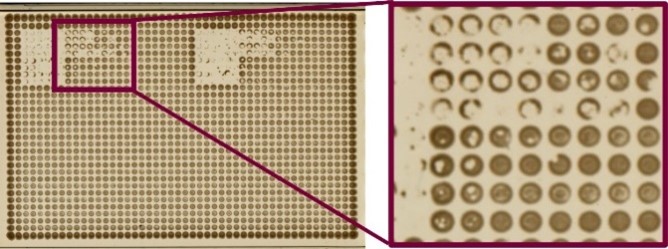Micro-Plaque Assay

Micro-Plaque Assay demonstrating plaquing of unique phages on a clinical P. aeruginosa isolate1.
Tech ID
20-045
Inventors
L. Burrows
A. Hynes
Z. Hosseinidoust
M. Surette
Patent Status
US Provisional Filed
Stage of Research
Proof of Principle Completed
Contact
Amy Hector
Business Development Manager
647-232-5550
Abstract
Plaque assays are powerful tools to reproducibly count bacteriophages (phages), distinguish between phages and other bactericidal entities, identify mixed populations of phages, enable the purification of phages, and quantify the bactericidal efficacy of a phage against its host. However, the plaque assay is laborious and not scalable, impacting fundamental research and the ability to leverage phages in therapeutic applications.
Researchers at McMaster have developed a micro-plaque assay that provides a scalable and efficient approach to isolating and characterizing multiple phages1.
Applications
- Rapid discovery of bacteriophages, including ones not detectable by traditional methods.
- Quantified typing of bacteriophages to distinguish between unique phages and identify routes for application.
- Quantified profiling of phage sensitivity to bacterial isolates in clinically relevant contexts, to identify phages that could serve as treatment options.
- Optimization of bacterial libraries for phage capture and discriminatory power.
Advantages
- High-throughput phage isolation on large libraries of ‘bait’ bacteria, without background noise from endogenous viruses.
- Efficiently characterize phages.
- Use well-characterized phages to rapidly generate a quantitative phage sensitivity profile for a single bacterial isolate under conditions that mimic in vivo or in situ sites where the phage might be applied, to identify optimal phage candidates across a large library.
References
- Nair et al., 2024. Micro-plaque assays: A high-throughput method to detect, isolate, and characterize bacteriophages. doi: https://doi.org/10.1101/2024.06.20.599855

